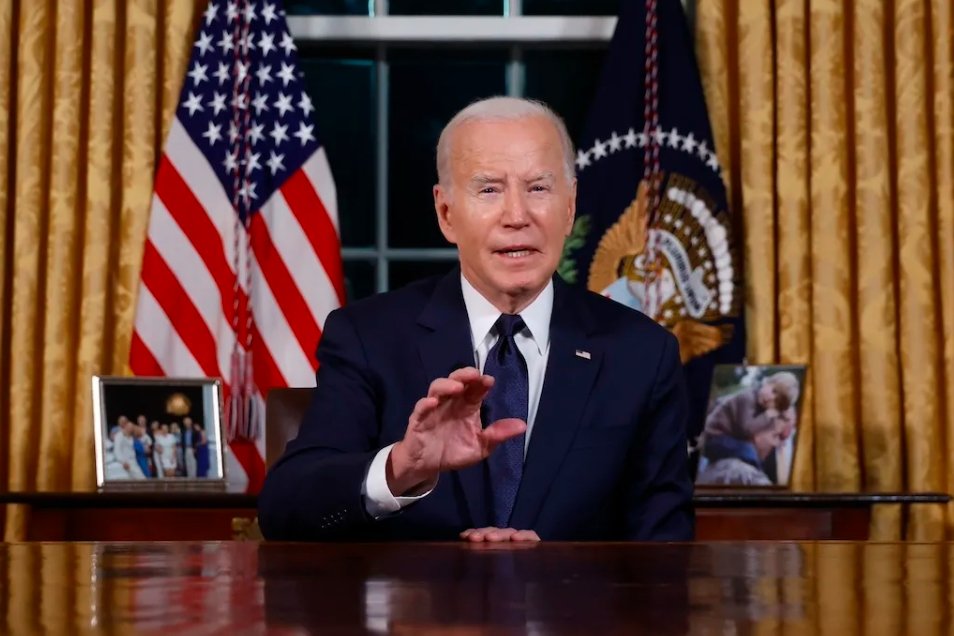President Joe Biden has made foreign policy a central pillar of his administration, emphasizing the need to restore America’s global leadership and alliances. However, some experts warn that his ambitious agenda could face serious challenges and risks, both at home and abroad, that could undermine his chances of re-election in 2023.
Biden’s Foreign Policy Vision
Biden has outlined his foreign policy vision in several speeches and documents, most notably in his first address to the State Department staff in February 2022 and in his National Security Strategy released in November 2022. In both, he stressed the following themes:
- Democracy: Biden declared that “America is back” and that he would lead by the power of example, not the example of power. He pledged to support democratic values and human rights around the world, and to confront authoritarian regimes like China and Russia. He also announced a Summit for Democracy to be held in December 2022, where he would rally like-minded countries to advance a common agenda.
- Alliances: Biden reaffirmed his commitment to NATO and other multilateral institutions, saying that “America’s alliances are our greatest asset”. He vowed to consult and cooperate with allies and partners on key issues such as climate change, COVID-19, cyber security, trade, and non-proliferation. He also sought to repair the damage done by his predecessor, Donald Trump, who had alienated many allies with his unilateral and transactional approach.
- Competition: Biden acknowledged that the U.S. was facing a new era of strategic competition with China and Russia, who were seeking to challenge the rules-based international order and undermine U.S. interests and values. He said that he would pursue a “strong and smart” strategy to counter their threats and influence, while also exploring areas of cooperation where possible. He also emphasized the need to invest in America’s economic and technological competitiveness, as well as its military and diplomatic capabilities.
- Endless wars: Biden announced that he would end the U.S. involvement in the “forever wars” in Afghanistan and Iraq, and instead focus on the emerging threats of the 21st century. He said that he would use diplomacy and development as the primary tools of U.S. foreign policy, and that he would only use force as a last resort and with congressional authorization. He also pledged to uphold the highest standards of accountability and transparency in the conduct of U.S. military operations.
Biden’s Foreign Policy Achievements
Biden has made some notable achievements in his first year in office, demonstrating his ability to deliver on his foreign policy promises. Some of these include:

- Rejoining the Paris Climate Agreement: Biden reversed Trump’s decision to withdraw from the landmark accord, and rejoined the global effort to combat climate change. He also hosted a Leaders Summit on Climate in April 2022, where he announced a new U.S. target to reduce greenhouse gas emissions by 50-52% below 2005 levels by 2030. He also pledged to increase U.S. financial assistance to developing countries to cope with the impacts of climate change.
- Reviving the Iran nuclear deal: Biden resumed diplomatic engagement with Iran and other signatories of the 2015 Joint Comprehensive Plan of Action (JCPOA), which had been abandoned by Trump in 2018. He offered to lift some of the sanctions imposed by Trump in exchange for Iran’s return to compliance with the deal’s limits on its nuclear program. After several rounds of indirect talks in Vienna, the two sides reached a provisional agreement in November 2022, paving the way for a formal restoration of the deal.
- Strengthening the transatlantic alliance: Biden reaffirmed the U.S. commitment to NATO and the Article 5 collective defense clause, which had been questioned by Trump. He also announced a new U.S.-EU Trade and Technology Council, which aimed to foster cooperation and coordination on key issues such as digital regulation, artificial intelligence, and 5G. He also resolved some of the longstanding trade disputes with the EU, such as the Boeing-Airbus subsidy case and the steel and aluminum tariffs.
- Mobilizing NATO allies to support Ukraine: Biden rallied NATO allies to provide political and military support to Ukraine, which was facing a renewed threat of Russian invasion in late 2022. He announced a $200 million package of security assistance to Ukraine, and coordinated with other NATO members to send additional weapons, equipment, and troops to the region. He also imposed new sanctions on Russia and warned Putin of “severe consequences” if he attacked Ukraine.
Biden’s Foreign Policy Challenges and Risks
Despite his achievements, Biden also faced some significant challenges and risks in his foreign policy, which could erode his credibility and popularity, both at home and abroad. Some of these include:
- The chaotic withdrawal from Afghanistan: Biden’s decision to end the U.S. military presence in Afghanistan after 20 years of war was widely criticized for being poorly planned and executed, resulting in a humanitarian and security crisis. The Taliban swiftly took over the country, and the U.S. and its allies struggled to evacuate their citizens and Afghan allies. The withdrawal also damaged the U.S. reputation and trust among its allies, and emboldened its adversaries.
- The failure to secure a trade deal with the UK: Biden’s efforts to negotiate a comprehensive free trade agreement with the UK, which had left the EU in 2020, were hampered by several obstacles and disagreements. The main sticking point was the Northern Ireland Protocol, which created a customs border between Northern Ireland and the rest of the UK, and which Biden insisted on preserving to protect the 1998 Good Friday Agreement. The trade talks also faced opposition from some U.S. lawmakers and interest groups, who raised concerns about the UK’s food safety standards, environmental regulations, and digital taxes.
- The backlash against his human rights agenda: Biden’s promotion of democracy and human rights around the world met with resistance and retaliation from some of the authoritarian regimes he targeted. China imposed sanctions on several U.S. officials and entities, and accused the U.S. of interfering in its internal affairs, especially on the issues of Hong Kong, Xinjiang, and Taiwan. Russia also imposed counter-sanctions on the U.S., and expelled several U.S. diplomats and journalists, and accused the U.S. of supporting the opposition and civil society movements in Russia. Turkey, a NATO ally, also clashed with the U.S. over its human rights record, especially after Biden recognized the Armenian genocide in April 2022.
- The uncertainty over his health and leadership: Biden, who turned 80 in November 2022, faced questions and doubts about his health and mental acuity, especially after he suffered a minor stroke in September 2022, which required him to undergo surgery and take a brief leave of absence. Although he recovered and resumed his duties, some critics and opponents questioned his ability and suitability to lead the country and the world in a time of crisis and change. Some also speculated about his potential successors, such as Vice President Kamala Harris or Secretary of State Antony Blinken.
The Implications for the 2023 Election
Biden’s foreign policy could have a significant impact on his prospects for re-election in 2023, depending on how the American public and the international community perceive his performance and achievements. On the one hand, Biden could benefit from his image as a seasoned and respected statesman, who has restored America’s global leadership and alliances, and who has advanced the U.S. interests and values on the world stage. On the other hand, Biden could suffer from his image as a weak and ineffective leader, who has failed to deliver on his foreign policy promises, and who has exposed the U.S. to greater threats and challenges from its rivals and adversaries.
Ultimately, the outcome of the 2023 election will depend on a variety of factors, such as the state of the U.S. economy, the management of the COVID-19 pandemic, the performance of the Republican candidate, and the turnout and preferences of the voters. However, foreign policy could play a decisive role in shaping the public opinion and the international environment, and thus influencing the fate of Biden and his administration.


















